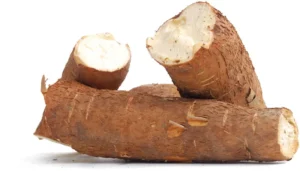Cassava Processing Business in Nigeria: The New Goldmine

Nigeria is the largest producer of cassava in the world, with an annual production of over 60 million metric tons. Despite this enormous output, the country has yet to fully harness the economic potential of cassava processing. As global demand for cassava-based products continues to rise, many entrepreneurs are beginning to see the cassava processing business as the new oil in Nigeria. This guide provides an in-depth review of the cassava processing industry, its opportunities, challenges, and how to start and grow a successful cassava-based enterprise.
Why Cassava Processing is a Lucrative Business in Nigeria
1. High Demand for Cassava Products
Cassava can be processed into various products such as garri, cassava flour, starch, ethanol, fufu, and animal feed. These products are in high demand both locally and internationally, creating a profitable market for processors.
2. Government Support and Policies
The Nigerian government has been actively promoting agricultural value chains, including cassava processing. Various incentives, grants, and favorable policies have been put in place to encourage investment in cassava processing businesses.
3. Job Creation and Economic Growth
With the right investments and infrastructure, the cassava industry has the potential to create millions of direct and indirect jobs, reducing unemployment and boosting the nation’s GDP.
4. Export Potential
Processed cassava products such as cassava starch and ethanol are in high demand in global markets. Countries in Europe, Asia, and America import these products for industrial and food processing uses.
READ MORE: How to Improve Crop Yield: 7 Effective Farming Techniques
Types of Cassava Products and Their Market Value
1. Garri
Garri is the most widely consumed cassava product in Nigeria. It is processed through fermentation, drying, and frying. The demand for garri is ever-growing, making it one of the most profitable cassava derivatives.
2. Cassava Flour
Cassava flour serves as an alternative to wheat flour and is widely used in baking, confectionery, and food processing industries. It is gluten-free, making it a preferred choice for people with gluten intolerance.
3. Cassava Starch
Cassava starch is used in food production, pharmaceuticals, textiles, and paper industries. Nigeria imports millions of dollars’ worth of starch annually, despite its local production potential.
4. Ethanol (Biofuel)
Ethanol extracted from cassava is used in biofuel production, cosmetics, and alcoholic beverages. With the global push for renewable energy, the demand for ethanol is increasing, making it a lucrative venture.
5. Fufu and Cassava Chips
Fufu is a staple food in Nigeria, while cassava chips are used in animal feed production. Both products have extensive market potential.
How to Start a Cassava Processing Business in Nigeria
1. Market Research and Feasibility Study
Understanding the market demand, potential customers, and competitors will help you make informed decisions about your cassava processing business.
2. Choose a Suitable Processing Niche
You can choose to focus on garri processing, starch production, ethanol extraction, or a combination of multiple products.
3. Secure Funding
Cassava processing requires capital investment in machinery, land, and raw materials. You can secure funds through government grants, agricultural loans, or private investors.
4. Acquire the Necessary Equipment
Basic equipment needed for cassava processing includes peelers, graters, fermenting tanks, drying machines, and packaging machines. The type of machinery depends on the scale of production.
5. Raw Material Sourcing
You need a steady supply of fresh cassava roots. Partnering with local farmers or owning a cassava farm can ensure a consistent supply of raw materials.
6. Production Process and Quality Control
Processing cassava involves several stages, including peeling, grating, fermenting, drying, and packaging. Quality control is essential to ensure that the final products meet local and international standards.
7. Marketing and Distribution
Selling your cassava products requires a solid marketing strategy. You can target local markets, supermarkets, restaurants, food manufacturers, and international buyers.
Challenges in the Cassava Processing Industry
1. Inconsistent Cassava Supply
Poor farming practices and climate change can lead to fluctuations in cassava supply, affecting processing businesses.

Cassava Processing Business in Nigeria: The New Goldmine
2. High Cost of Equipment and Infrastructure
Processing machines and storage facilities require significant investment, which can be a barrier for small-scale entrepreneurs.
3. Poor Road and Transportation Network
The lack of efficient transportation systems affects the distribution of cassava products, leading to post-harvest losses.
4. Limited Access to Finance
Many small and medium-scale cassava processors struggle to access affordable loans and grants to expand their businesses.
Future Prospects of the Cassava Processing Business
1. Increased Government Support
The government is likely to increase funding and incentives for agribusinesses, which will further boost the cassava processing sector.
2. Technological Advancements
The introduction of modern processing machines and digital solutions can enhance efficiency and reduce production costs.
3. Expansion into Global Markets
With proper branding and quality assurance, Nigerian cassava products can penetrate international markets, creating more opportunities for exporters.
4. Research and Development
Investments in research and innovation can lead to new cassava-based products with higher market value, further driving growth in the industry.
Conclusion
The cassava processing business in Nigeria is indeed the new goldmine, offering immense opportunities for entrepreneurs willing to invest in value addition. With the right strategies, funding, and government support, the sector has the potential to drive economic transformation and create wealth for Nigerians. If you are looking for a profitable agribusiness, cassava processing is a venture worth considering.

Leave your comment